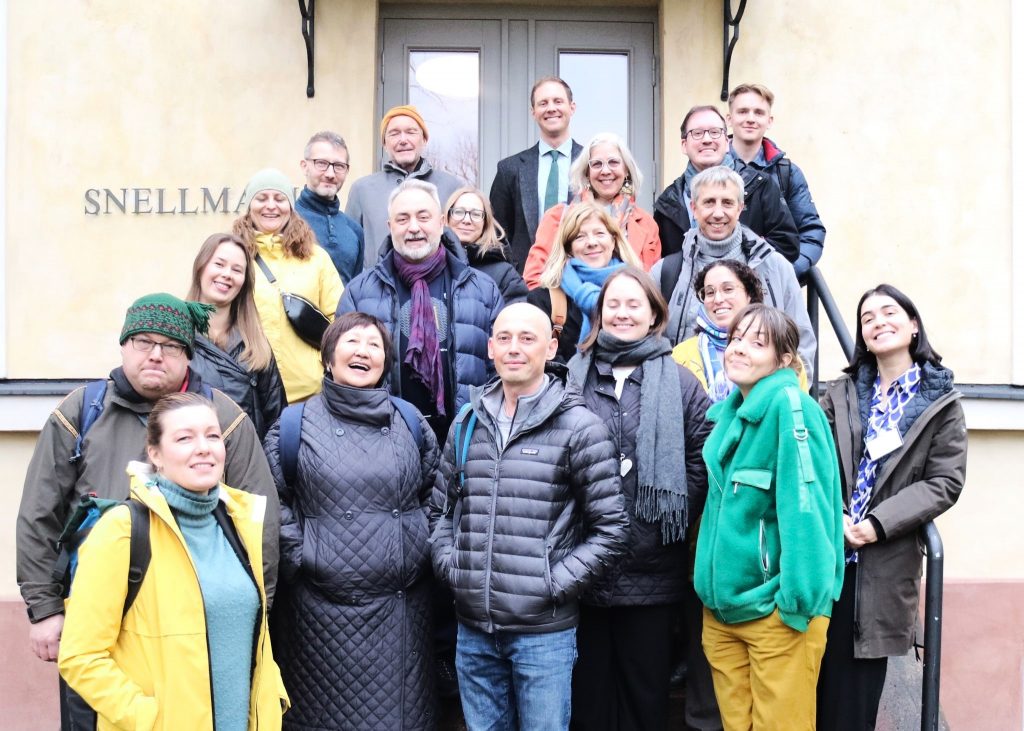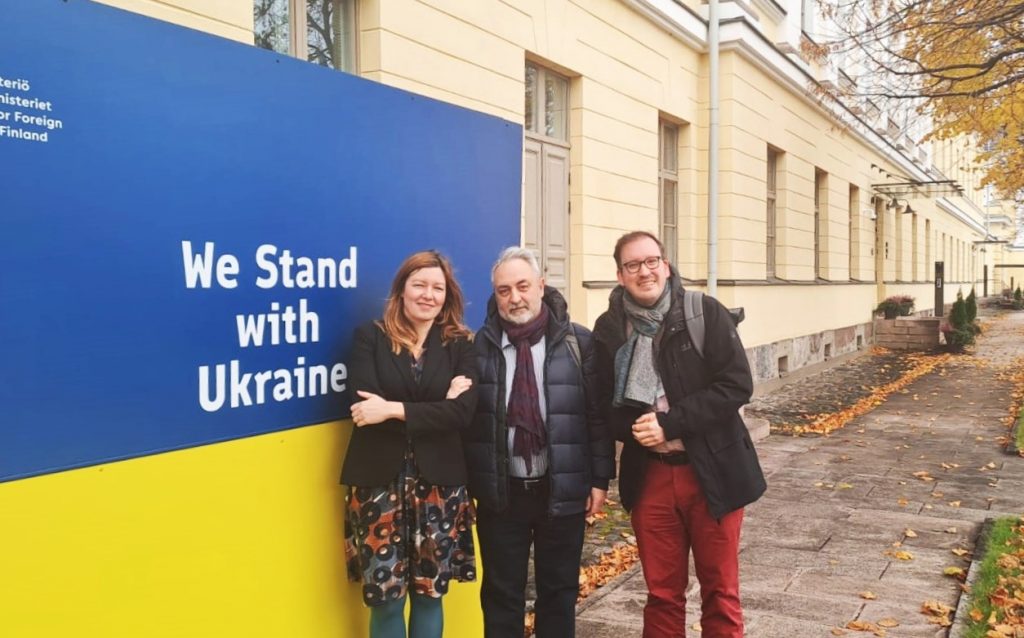
Background
Since 2021, on the background of the decreasing ability of the OSCE to address the deepening regional security crisis, anti-democratic developments, and growing repression in a number of participating States, members of an OSCE-wide civil society network, the Civic Solidarity Platform, started put forward an idea of organizing a process to discuss a role of the OSCE in the changing world and developing proposals for making the organization better fit to address the multifaceted crisis and respond to new challenges. It was agreed that the 50th anniversary of adoption of the Helsinki Final Act in summer 2025 provides a good opportunity to present such analysis and recommendations. Civil society may play an important role in advocating with participating states and OSCE bodies to adopt necessary reforms.
These ideas were discussed further and presented to the OSCE leadership and diplomats from delegations of participating States at the OSCE Parallel Civil Society Conference in Skopje in November 2023 and included in the outcome document of the conference, the Skopje Declaration. The idea was further presented by the CSP to delegations of all participating States in February 2024 at the OSCE Human Dimension Committee meeting and discussed with the teams of the Maltese OSCE Chairpersonship 2024 and the incoming Finnish OSCE Chairpersonship 2025. In the spring of 2024, the Civic Solidarity Platform (CSP) decided to organize the “Helsinki+50 reflection process.” It was launched in the summer 2024 with support of the Ministry for Foreign Affairs of Finland and the Ministry of Foreign Affairs of Germany.
Project goal
To analyze and reflect, with involvement of experts from civil society and academia, on the main challenges in the implementation of the Helsinki Final Act principles and the work of the OSCE 50 years after the signing of the Helsinki Final Act in the context of several interconnected international crises and the institutional crisis of the organization, and develop a set of concrete recommendations on changes and reforms in several key areas of OSCE activities and the implementation of OSCE commitments by participating States, aimed at making the OSCE more effective and capable of effectively responding to the current crises and new challenges.
Project objectives
- To organize a process of analysis and reflection of the main challenges in the implementation of the Helsinki Final Act principles and the work of the OSCE 50 years after the signing of the Final Act, by establishing and organizing the work of a “Helsinki+50 Reflection Group,” comprised of experts from civil society organizations and academic institutions, as well as selected former OSCE officials or former diplomats with experience of working with the OSCE, with strong expertise in the issues within the OSCE mandate.
- Identify through discussions in the Reflection Group the most important thematic areas to be addressed in the course of analysis, discussions, and elaboration of recommendations on strengthening and reforming the OSCE.
- Hold discussions and analysis on five selected thematic areas during a series of five in-person expert seminars. Discuss other identified topics through online communications. Each of the seminars will bring together around 20 experts in the chosen subjects (coming from both among members of the Reflection Group and outside of it) and will be focused not only on identifying and discussing specific challenges but on elaborating concrete recommendation for a way forward.
- A public written report on the seminar proceedings will be prepared each time and distributed among relevant actors, including OSCE bodies and institutions, participating States, and civil society. In addition, expert papers on the themes covered at the seminars and online discussions will be commissioned, produced, and distributed.
- Towards the end of the project, a concise outcome document of the Reflection Process will be produced and distributed. It will include key recommendations from the seminars and online discussions, aimed at strengthening the OSCE and making it more effective in responding to the current crises and new challenges.
- The outcome document of the Reflection Process will be presented at the OSCE Chairpersonship conference in the end of July 2025 in Helsinki and discussed in meetings with stakeholders.

Project progress
1. In August-September 2024, the “Helsinki+50 Reflection Group” was formed through consultations with relevant organizations. It includes more than 30 experts from civil society and academia and is coordinated by the Civic Solidarity Platform.
2. In early fall 2024, a preliminary list of thematic areas has been identified by the Reflection Group to be addressed in the course of expert seminars and online discussions. The list is refined and updated as the Reflection Group continues its discussions.
3. On 29 September 2024, the first expert seminar, “Civil society’s role in the implementation of the Helsinki principles. Expanding civil society’s engagement with the OSCE,” was held in Warsaw and brought together 20 experts.
4. In October-November 2024, a public report on the first seminar, on civil society and the OSCE, was produced.
5. On 5 November 2024, the second seminar, “Environmental security and the OSCE” was held in Helsinki, in partnership with “Historians without Borders,” and brought together 25 experts.
6. In November-December 2024, a public report on the second seminar, on environmental security and the OSCE, was produced.
